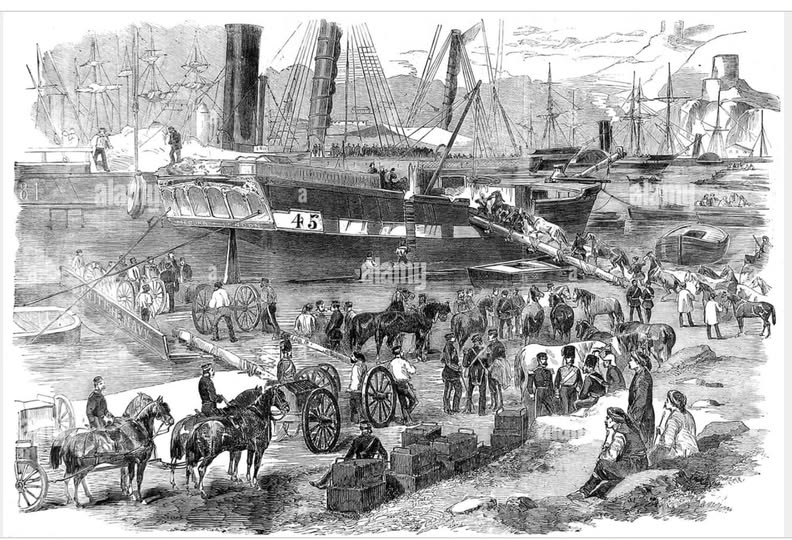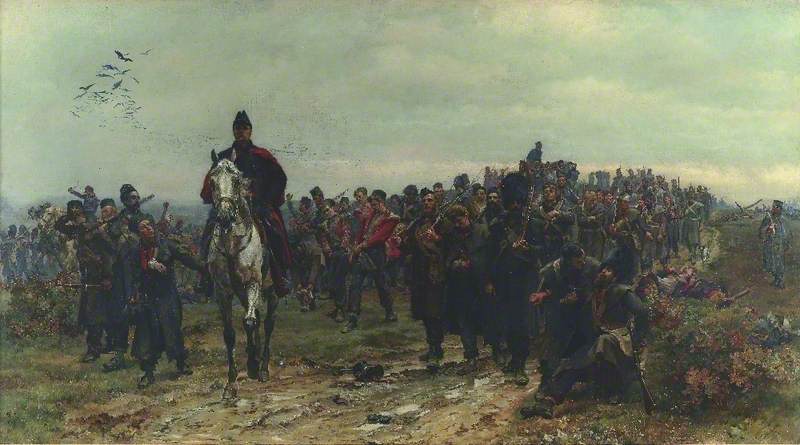How the city pioneered animal welfare is outlined by our equine transportation correspondent Angus Young.

Trade between the UK and Russia is currently in limbo thanks to the latter’s invasion of Ukraine. However, the history of trading between the countries stretches back centuries with the ports of Hull and St. Petersburg on the Baltic Sea playing a pivotal part in that story.
Back in 1802, four out of every five ships arriving in Hull that year were from St. Petersburg mainly carrying hemp, flax and iron. In the opposite direction, exports shipped from Hull included cotton-twist made in Lancashire, textiles, pottery, lead and horses.
Thoroughbred horse-racing in Russia first developed in the late 18th century with an eye on copying the already established English model. As a result, English bloodstock and horse-dealers were in big demand. In the 1780s between 200 and 300 English horses were shipped to St Petersburg every year, most of them from Hull.
Such was their value, shipping merchants in Hull specially adapted their vessels to ensure the horses arrived in a healthy condition after their sea journey to Russia. In each ship, entire holds were converted with horses being placed in separate roped-off spaces running along each side of the vessel with a central passageway between them for their grooms. Each horse was tethered to a feeding trough fixed to the side of the ship and provided with hay, straw and fresh water stored in casks which were re-filled with salt water once emptied to act as ballast. Each stall was levelled with a mixture of shingle and sand to mimic a traditional stable and, crucially, was laid out to provide enough space for the horse to be able to lie down and get back up again.
This so-called ‘Hull system’ of transporting horses eventually became the focus of a House of Lords debate in 1855 at the height of the Crimean War when it was favourably compared to the shipment of cavalry horses by the government. Under the military method, horses were stood on wooden platforms between decks and wedged between a series of pillars, posts and rails as well as being held upright by slings. There was no space for an animal to lie down.

In the debate, the Earl of Albemarle urged ministers to adopt the Hull system after highlighting the shocking deaths of around 100 horses belonging to one cavalry regiment during and immediately after one journey by sea to the Crimea. In doing so, he quoted veteran Yorkshire horse-dealer Thomas Kirby who had spent over 50 years exporting horses from Hull to St Petersburg. Kirby’s first trip to Russia was in 1791 as a 21-year-old when he took over a string of horses to sell on behalf of a Market Weighton brewer in what he described as a “speculative venture”. His later clients included the Russian royal family.
In a letter, Kirby said: “I know the way that the government has of shipping the transport horses is shocking. I was myself in the habit of going with horses to St. Petersburg both in wartime and peace, and never had but one horse die on board and mostly landed them as well or better than when they were shipped.”
The Earl of Albemarle added: “ I would venture to say that nothing like that number of casualties has occurred in the whole horse trade of Hull in the last 50 years.”
The lords supported his motion, calling on the government to make greater use of larger steam ships to carry horses instead of relying on smaller less adaptable sailing ships. However, before the vote, the Earl glumly noted he had been informed by the war minister that the current transportation system used since the Napoleonic Wars “was to be continued without the adoption of improvements suggested by modern experience”.
The Hull system remained in place for private horse-trading but would not become part of the cavalry’s way of doing things.
